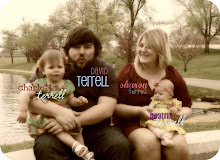
Couldn't help it, I'm a sucker for puns.
I'm also a huge sucker for books; any kind will do, really. I have my preferred fiction genres (post-apocalyptic, magical realism, magical non-realism, classics) and then I have my deep and abiding love of non-fiction. It's my go-to when learning a new skill, or whenever I feel that I've completely turned my brain into mush by reading far too many Jim Butcher books. (Just kidding, I love that crazy Harry Dresden.)
A good non-fiction book functions best, in my opinion when it a) spurs an interest in a previously unknown subject ("Stiff: the Curious Life of Human Cadevers" comes to mind), or b) helps the reader grow and develop an already developed interest.
The book I just finished, "The Unlikely Disciple: A Sinner's Semester at America's Holiest University" by Kevin Roose, falls into a little of both categories. I'll be the first to admit that I have trouble reading books aimed at spiritual-growth. I don't know if it's the Christian-ese jargon or the fact that I feel I can only read a couple of pages before I feel utterly overwhelmed. It could be that I don't like Beth Moore at all, and it seems that if you're a Christian female, you're pretty much relegated to this type of saccharine-syrupy spirituality. (Sorry, Beth Moore. The only person who can get away with calling me "dear one" is Aslan.) This is also probably why I haven't ever finished "Mere Christianity," though I've started it at least a dozen times. It's also the reason that David is nagging me to start Donald Miller's new book. Oops.
So in an attempt to fix this I've kind of diverted my energy into a new genre: the spiritual memoir. Which is, combined with some investigative journalism, what we've got here. Here's the premise: Kevin Roose, a sophomore at Brown with an upbringing in free-form Quakerism (the kind where a "worship service" involves sitting in a circle focusing on one's inner God-light) decides to spend a semester at Jerry Falwell's Liberty University to understand, and perhaps humanize, Evangelical Christians. It's an amazing idea, but it worried me. Roose was an admitted liberal Athiest, and while I applauded him for recognizing his religous biases upfront, I also knew that my own spiritual upbringing would likely cause some conflicts. I was hoping that he'd avoid the Christopher Hitchins-Richard Dawkins kind of churlishness I'd come to expect from modern Atheist apologetics.
And I'll admit, Roose was extremely even-handed. It was enlightening to see how we as Christians (or at least a large segment of Christians) portray ourselves to the outsider. Personally, this book probably revealed more about my biases and hang-ups than about anything else. I'd never thought of myself as an Evangelical before, but as I read, I came to see that pretty much everything I'd been taught as a child about theology, morals, worship, prayer, and people were centered around an Evangelical standard.
Some parts were painful to read. Kevin's homophobic roomate spews that "If I found out my roomate was a faggot, I'd beat him with a baseball bat." The cold-turkey evangelism at Daytona Beach, where a local campus ministry sets up a fake club (complete with fake bouncers and laser lights) to trick besotted Spring-Breakers into hearing a salvation message. Pretty much every "History of Life" class, where Kevin's Creationist professor hits about every single stereotype about Evangelicals in one fell swoop.
What was surprising, however, was Kevin's fotuitous interview with Liberty's founder himself, Jerry Falwell. The book spends a lot of pages on Falwell, understandably. He was an iconic and polemic figure. Everyone knows the horrible, acrimonious things he said after 9/11, where he blamed the event on gays, lesbians, pagans, idolaters, pro-choicers, and the ACLU, to name a few. Roose was able to portray Falwell as a man fervently committed to what he believed in, dogmatic and bulldog-ish, but legit in everything he said. He humanized him without making light of his political shennanigans. And, interestingly enough, it was the last print interview Falwell ever did before he died.
Did he convert in the end? Well, no. Roose began the project with an agenda, or course. It was unlikely he'd be a die-hard fundamentalist at the end, but I also didn't spend 200+ pages feeling like I'd been waylaid by a Michael Moore documentary. Roose was able to portray Evangelical Christians in a different light, pretty much highlighting that, to paraphrase, we've all fallen short of God's standard. Hey, I could've told him that in about a paragraph, but the book was worth reading if only for what it showed me about myself and the way I interact with people outside of my fish-bowl. This isn't a book to answer your questions. If anything, you'll come out with more questions than before. It will, however, give you an authentic perspective on fundamentalism and Evangelicalism, and hopefully, spur you to a more compassionate state of mind when it comes to people with a mindset entirely opposite of your own.

